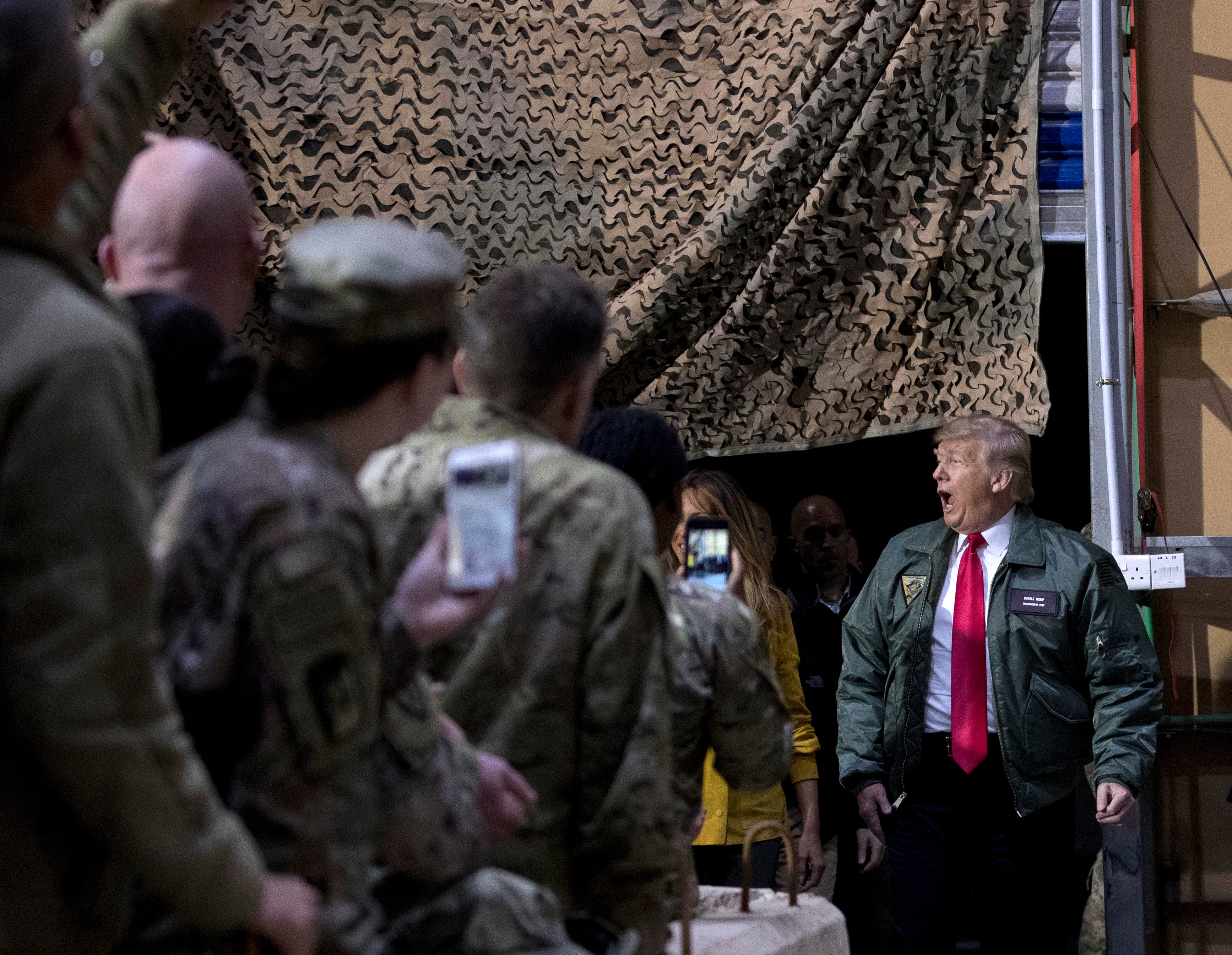A 3.1 percent military pay raise is set to take effect on Jan. 1, regardless what lawmakers say about the ongoing budget fights on Capitol Hill.
On Thursday, Senate Democratic leaders blasted Republican colleagues for misleading military members about their future paychecks, assuring troops that their annual salary boost is safe. In fact, the pay increase for troops is set to go into effect in two months unless Congress or the president intervenes, both unlikely scenarios.
“Republicans are so desperate to divert attention … that they come up with completely false arguments like the fact that if we don’t pass (an appropriations bill), the troops won’t get a pay raise,” Senate Minority Leader Chuck Schumer, D-N.Y., in an angry floor speech ahead of a procedural budget vote.
RELATED

Todd Harrison, director of defense budget analysis at the Center for Strategic and International Studies, said under federal statute, the pay raise is automatically set based on federal formulas of anticipated civilian sector wage growth.
Lawmakers reinforce that number — or suggest another figure — in their annual defense appropriations and authorization bills, both of which have been stalled for months in Congress. But Harrison said unless changes are made to the figure, neither are critical.
“If you want it higher or lower, you need to pass a separate bill,” he said. “So you don’t need an authorization bill or an appropriations bill for it. The pay raise is safe.”
For junior enlisted troops, a 3.1 percent pay raise would amount to roughly $815 more a year in pay. For senior enlisted and junior officers, the hike equals about $1,500 more. An O-4 with 12 years service would see more than $2,800 extra next year under the increase.
In the past, including three consecutive years under former President Barack Obama, military officials have pushed lawmakers and the White House to back smaller-than-scheduled pay raises in order to save money for other defense priorities, like equipment modernization and reset.
But President Donald Trump has expressed support for the 3.1 percent raise for 2020 and has not made any public plans about trying to block the raise. The pay raise, which will be the largest in a decade, has been a point of pride in recent events with troops and veterans audiences.
Similarly, both Republicans and Democrats have offered strong support for the raise throughout the year, and none have offered legislation to block it.
But the pay raise has been cited frequently as a potential casualty of the current budget impasse on Capitol Hill, as party leaders spar over issues related to Trump’s southern border wall project and the ongoing impeachment hearings into his withholding of foriegn aid to Ukraine.
Just moments before Schumer’s remarks, across the capitol, House Minority Whip Steve Scalise, R-La., blasted his chamber’s Democrats for putting the ongoing impeachment proceedings ahead of finalizing military funding legislation, invoking the military pay fears.
“We don't have a bill to formally pay our troops and make sure they have the tools they need to defend this country, because there's so much an infatuation with impeachment,” he said.
Earlier, House Minority Leader Kevin McCarthy, R-Calif., complained that “pay increases for our troops and disaster recovery funds are at a stalemate” because of the budget impasse. Senate Majority Leader Mitch McConnell, R-Ky., accused Democrats of being more interested in “picking fights with the White House” than helping troops.
RELATED

But Schumer attacks those comments as disingenuous and misleading.
“My Republican friends in Congress should stick to the facts, quit the partisan theatrics, quit the politics of blame, and quit trying to harm very serious patriots whose lives and safety might be in danger,” he said.
A host of specialty pays such as re-enlistment bonuses and certain overseas deployment salary boosts are dependent on annual congressional reauthorization. And Pentagon officials have noted that without a new budget deal for fiscal 2020, the cost of the military pay raises will put extra pressure on Defense Department spending accounts.
Leo covers Congress, Veterans Affairs and the White House for Military Times. He has covered Washington, D.C. since 2004, focusing on military personnel and veterans policies. His work has earned numerous honors, including a 2009 Polk award, a 2010 National Headliner Award, the IAVA Leadership in Journalism award and the VFW News Media award.





